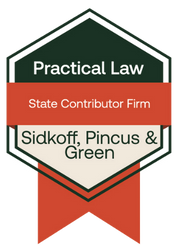Philadelphia Whistleblower Lawyers: Enforcement Action Leads to $3.5M Award

A whistleblower was recently awarded approximately $3.5 million by the Securities and Exchange Commission (SEC) for shining a light on wrongdoing that led to a successful enforcement action. According to the SEC – which did not name the whistleblower nor identify the wrongdoer – tips from whistleblowers have led to the recovery of $874 million in financial remedies since the SEC whistleblower program was created in 2012.
Many Americans remain unaware of the financial incentives available to conscientious employees who report their employer’s fraudulent behavior. Whistleblower protection extends to any worker who alerts government regulators to a variety of wrongdoing, including violations of the False Claims Act, the Clean Air Act, the Dodd-Frank Act, the Occupational Safety and Health Act, and many other federal statutes. A whistleblower is granted complete confidentiality by the government when the information disclosed leads to a successful enforcement action. Moreover, if monetary sanctions issued against a wrongdoer exceed $1 million, a whistleblower is entitled to an award ranging between 10 percent and 30 percent of the sanction.
Proceeding as a Whistleblower in Pennsylvania
Whistleblowers must proceed with caution and limit discussions of their concerns with coworkers. Instead, if an employee has a good faith belief that their employer has defrauded the government or consumers, they should first seek counsel from a lawyer who will ensure that whistleblower protections are in place before regulators are contacted. An employer who suspects that a member of their workforce is in talks with the SEC or other government officials may attempt to short-circuit an investigation by taking retaliatory action against a whistleblower. Fortunately, pursuant to the federal Whistleblower Protection Program, when a whistleblower’s actions lead to an enforcement action, the whistleblower is entitled to reinstatement to their previous position in addition to the aforementioned monetary award.
Philadelphia Whistleblower Lawyers at Sidkoff, Pincus & Green, P.C. Offer Reliable, Trustworthy Representation
Philadelphia whistleblower lawyers at Sidkoff, Pincus & Green P.C. understand the concerns of conscientious employees in their effort to shed light on wrongdoing by an employer. If you or a loved one has information relating to a potential whistleblower claim, call 215-574-0600 or contact us online to learn more about how we can help. At our Philadelphia offices, we proudly serve whistleblower clients throughout Southeastern Pennsylvania as well as South Jersey.



















